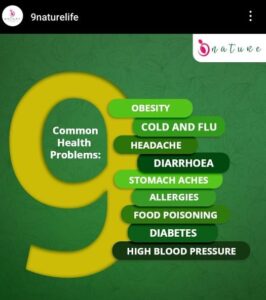Vitamin D, frequently alluded to as the “daylight nutrient,” assumes a fundamental part in keeping up with generally wellbeing and prosperity. It is an essential nutrient that supports bone health, immune function, and a myriad of other physiological processes in the body. However, despite its significance, a large portion of the global population suffers from vit d, which can lead to a range of health issues. In this comprehensive blog, we will delve into the pros and cons of vitamin D deficiency, exploring its symptoms, causes, and potential consequences. Additionally, we will discuss various ways to address its deficiency through dietary sources, supplements, herbal medicine and lifestyle changes.
Understanding Vitamin D And Its Importance
1.1 What is Vitamin D?
Vitamin D is a fat-soluble vitamin that primarily aids in the absorption of calcium and phosphorus in the body. It exists in two primary forms: vitamin D2 (ergocalciferol) and vitamin D3 (cholecalciferol). Vitamin D2 is derived from plant sources, while vitamin D3 is produced in the skin when it is exposed to sunlight.
1.2 Role of Vitamin D In The Body
Vitamin D plays a multitude of crucial roles in the body, including:
• Bone Health: It helps regulate calcium and phosphorus levels, promoting proper bone mineralization and reducing the risk of fractures and osteoporosis.
• Immune Function: It plays a significant role in supporting the immune system, helping the body defend against infections and diseases.
• Cardiovascular Health: It has been linked to a lower risk of cardiovascular diseases, as it may help regulate blood pressure and improve blood vessel function.
• Mood and Mental Health: Some studies suggest that vit D may have a positive impact on mood disorders like depression and anxiety.
Vitamin D Deficiency: Causes, Symptoms, And Risk Factors
2.1 Causes Of Vitamin D Deficiency
Vitamin D deficiency can result from various factors, such as:
• Inadequate Sun Exposure: People who spend little time outdoors or live in regions with limited sunlight may not produce enough its in their skin.
• Diet: A diet lacking in vit D-rich foods can contribute to deficiency. Certain dietary restrictions, such as vegan or vegetarian diets, may also be a factor.
• Mature: As individuals age, their skin turns out to be less productive at blending vit D from daylight.
Skin Color: Darker skin contains more melanin, which can reduce the skin’s ability to produce vitamin D in response to sunlight.
2.2 Symptoms of Vitamin D Deficiency
The side effects of lack of vit D can be unpretentious and barely noticeable. Some common signs include:
• Weariness and Shortcoming: Feeling drained and feeble even after adequate rest.
• Bone Pain: Persistent bone pain or frequent bone fractures.
• Muscle Shortcoming: Trouble in performing proactive tasks because of debilitated muscles.
• Impaired Wound Healing: Slow healing of wounds and injuries.
• Frequent Infections: Susceptibility to infections due to compromised immune function
Pros Of Vitamin D Deficiency
3.1 Limited Sun Exposure Reduces Skin Cancer Risk
One potential advantage of its deficiency is a reduced risk of skin cancer. Prolonged exposure to ultraviolet (UV) rays from the sun can damage the skin’s DNA, increasing the risk of skin cancer. By avoiding excessive sun exposure, individuals with its deficiency may indirectly lower their risk of developing skin cancer.
3.2 Low Vitamin D And Reduced Melanoma Risk
Melanoma, a type of skin cancer, is often linked to sun exposure and is more prevalent in individuals with fair skin. Some studies have suggested that lower vita D levels might be associated with a reduced risk of melanoma in certain populations. Nonetheless, more examination is expected to comprehend this relationship completely.
3.3 Preserving Bone Health In Some Populations
In certain medical conditions where bone turnover is excessively high, such as Paget’s disease, having lower levels of vit D might slow down bone remodeling and prevent complications. However, this is a highly specialized scenario and should not be generalized to the general population.
Cons Of Vitamin D Deficiency
4.1 Adverse Effects On Bone Health
Vitamin D deficiency can lead to reduced calcium absorption, which, in turn, affects bone health. Low levels o vit d can result in weakened bones, making individuals more susceptible to fractures and conditions like rickets in children and osteocalcin in adults.
4.2 Weakened Immune Function
Vitamin D is a crucial factor in maintaining a robust immune system. A deficiency can compromise the body’s ability to fight infections, leaving individuals more vulnerable to illnesses, including respiratory infections.
4.3 Increased Risk of Chronic Diseases
Emerging research suggests that vitamin D deficiency may be associated with an increased risk of various chronic diseases, including heart disease, diabetes, certain cancers, and autoimmune disorders. Low levels have been linked to inflammation, which plays a significant role in the development of chronic conditions.
Addressing Vitamin D Deficiency
5.1 Vitamin D-Rich Foods
To combat vitamin D deficiency, incorporating foods that are naturally rich in this vital nutrient is essential. Foods like fatty fish (salmon, mackerel, tuna), egg yolks, and fortified dairy products can be valuable sources of vit D.
5.2 Sunlight Exposure
Safe sun exposure is an efficient way to boost vitamin D levels. Spending 15-30 minutes in the sun, preferably during midday when the sun’s rays are strongest, can help the skin synthesize adequate amounts of vit D. However, it is crucial to balance sun exposure to avoid the harmful effects of excessive UV radiation.
5.3 Vitamin D Supplements
In cases where dietary intake and sunlight exposure are insufficient, vit D supplements may be recommended. It is essential to consult a healthcare professional before starting any supplementation, as excessive vit D intake can lead to toxicity.
5.4 Lifestyle Changes
Adopting a healthy lifestyle, including regular physical activity, a balanced diet, and stress management, can contribute to better vit D levels and overall health.
Conclusion
Vitamin D deficiency is a prevalent issue with potentially serious consequences for our health. While limited sun exposure might have some advantages, it is crucial to strike a balance to maintain optimal vit D levels. Addressing deficiencies through dietary choices, appropriate sun exposure, and supplementation, if necessary, can lead to improved bone health, a stronger immune system, and a reduced risk of chronic diseases. To ensure your its status remains optimal, always consult with a healthcare professional for personalized advice and guidance.
You Can Also Read: 10 Things Most People Don’t Know About What Is Ayurveda Medicine





